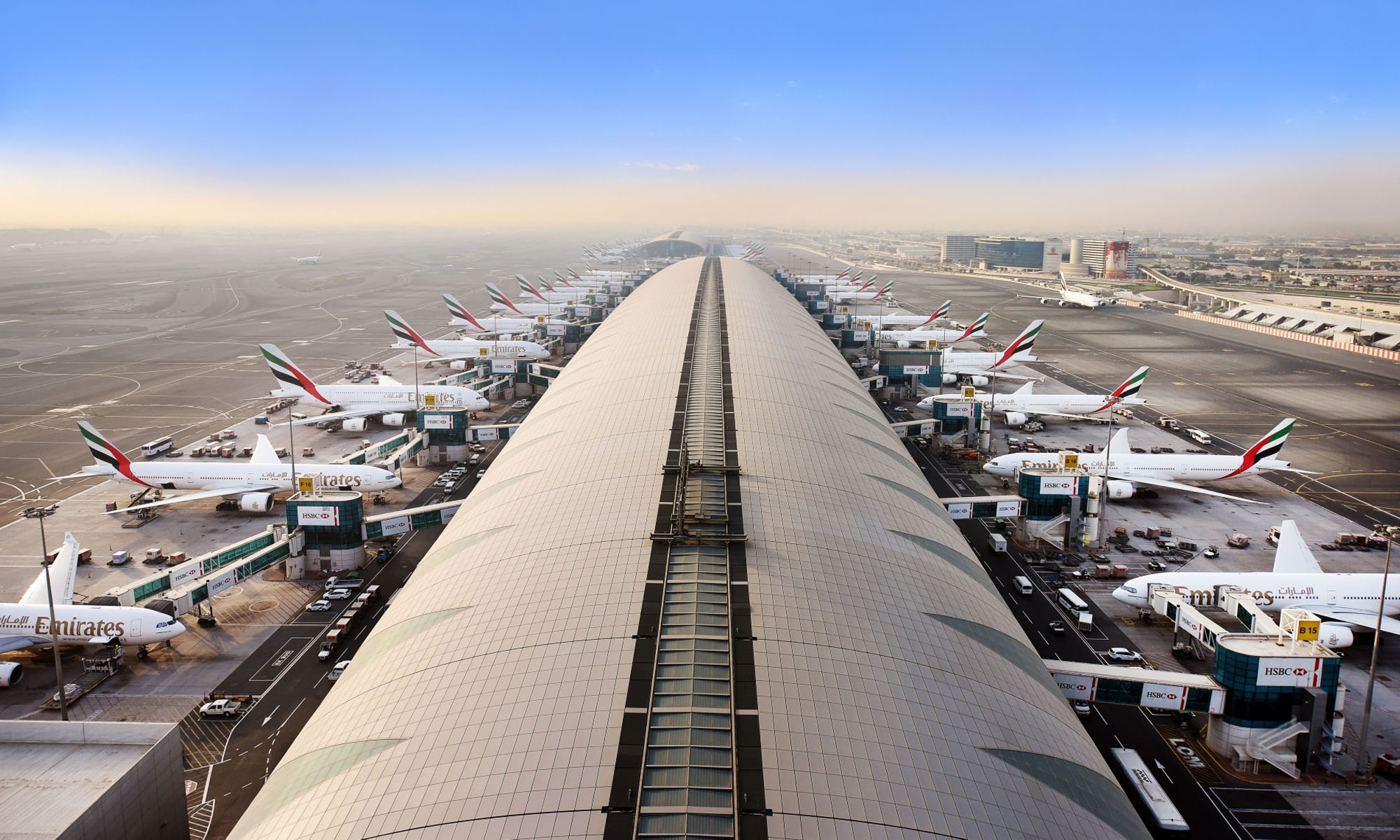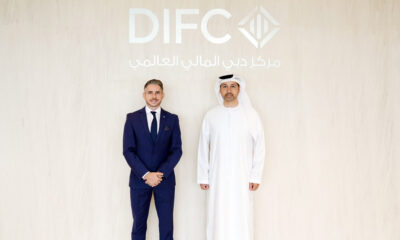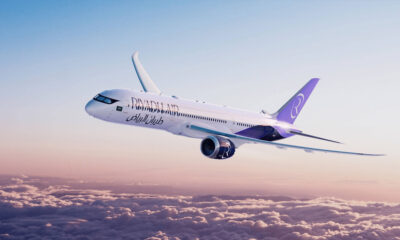News
Dubai To Install World’s Largest Airport Rooftop Solar Array
The project will mark a significant step toward greener airport operations and sustainable energy development.

In partnership with Etihad Clean Energy Development Company, Dubai Airports is launching the largest rooftop solar panel installation ever seen at an airport. This major project marks a significant step toward greener airport operations and sustainable energy development.
The agreement for the initiative was signed by Paul Griffiths, CEO of Dubai Airports, and Dr. Waleed Alnuaimi, CEO of Etihad ESCO, during the World Green Economy Summit (WGES).
Chairman and CEO of the Emirates Group, Saeed Mohammed Al Tayer, highlighted that this project aligns with the vision of His Highness Sheikh Mohammed bin Rashid Al Maktoum to make Dubai one of the world’s most sustainable cities. He pointed out, “Our roadmap sets clear goals for achieving 25% of energy from clean sources by 2030 and 100% by 2050. However, we are working ahead of schedule and aim to surpass our 2030 target, potentially reaching 27% clean energy by then. Innovation and advanced technologies will continue accelerating our journey towards a greener future”.
The installation will be fully operational by 2026 and includes 62,904 solar panels spread across Dubai International (DXB) and Al Maktoum International (DWC) airports, producing 39MWp of clean energy. This solar energy will power 6.5% of DXB’s needs and 20% of DWC’s, with the annual generation of 60,346MWh of electricity. This renewable energy initiative will offset 23,000 tons of CO2 emissions annually, equivalent to removing 5,000 cars from the roads or powering 3,000 homes annually.
Also Read: Applications Are Open For The 2025 WiSER Pioneers Program
Paul Griffiths, CEO of Dubai Airports, emphasized that airports are major energy consumers and bear a significant responsibility to implement meaningful changes. “This isn’t just about adding solar panels — it’s about embedding sustainability into our operations. Every kilowatt we generate brings us closer to minimizing our carbon footprint and securing a sustainable future for airport operations”.
Dr. Waleed Alnuaimi, CEO of Etihad ESCO, reiterated the importance of this partnership, stating, “This project and others like it are essential for advancing Dubai’s sustainability goals. By expanding the solar infrastructure, we reduce energy demands and increase the use of sustainable solutions”.
The initiative builds on the successful installation of solar panels at DXB’s Terminal 2 and Concourse D. These projects, alongside future innovations, show Dubai Airports’ commitment to environmental sustainability and reflect the UAE’s broader goals for a greener future.
News
Rabbit Expands Hyperlocal Delivery Service In Saudi Arabia
The e-commerce startup is aiming to tap into the Kingdom’s underdeveloped e-grocery sector with a tech-first, locally rooted strategy.

Rabbit, an Egyptian-born hyperlocal e-commerce startup, is expanding into the Saudi Arabian market, setting its sights on delivering 20 million items across major cities by 2026.
The company, founded in 2021, is already operational in the Kingdom, with its regional headquarters now open in Riyadh and an established network of strategically located fulfillment centers — commonly known as “dark stores” — across the capital.
The timing is strategic: Saudi Arabia’s online grocery transactions currently sit at 1.3%, notably behind the UAE (5.3%) and the United States (4.8%). With the Kingdom’s food and grocery market estimated at $60 billion, even a modest increase in online adoption could create a multi-billion-dollar opportunity.
Rabbit also sees a clear alignment between its business goals and Saudi Arabia’s Vision 2030, which aims to boost retail sector innovation, support small and medium-sized enterprises, attract foreign investment, and develop a robust digital economy.
The company’s e-commerce model is based on speed and efficiency. Delivery of anything from groceries and snacks to cosmetics and household staples is promised in 20 minutes or less, facilitated by a tightly optimized logistics system — a crucial component in a sector where profit margins and delivery expectations are razor-thin.
Despite the challenges, Rabbit has already found its stride in Egypt. In just over three years, the app has been used by 1.4 million customers to deliver more than 40 million items. Revenue has surged, growing more than eightfold in the past two years alone.
Also Read: Top E-Commerce Websites In The Middle East In 2025
CEO and Co-Founder Ahmad Yousry commented: “We are delighted to announce Rabbit’s expansion into the Kingdom. We pride ourselves on being a hyperlocal company, bringing our bleeding-edge tech and experience to transform the grocery shopping experience for Saudi households, and delivering the best products – especially local favorites, in just 20 minutes”.
The company’s growth strategy avoids the pitfalls of over-reliance on aggressive discounting. Instead, Rabbit leans on operational efficiency, customer retention, and smart scaling. The approach is paying off, having already attracted major investment from the likes of Lorax Capital Partners, Global Ventures, Raed Ventures, and Beltone Venture Capital, alongside earlier investors such as Global Founders Capital, Goodwater Capital, and Hub71.























